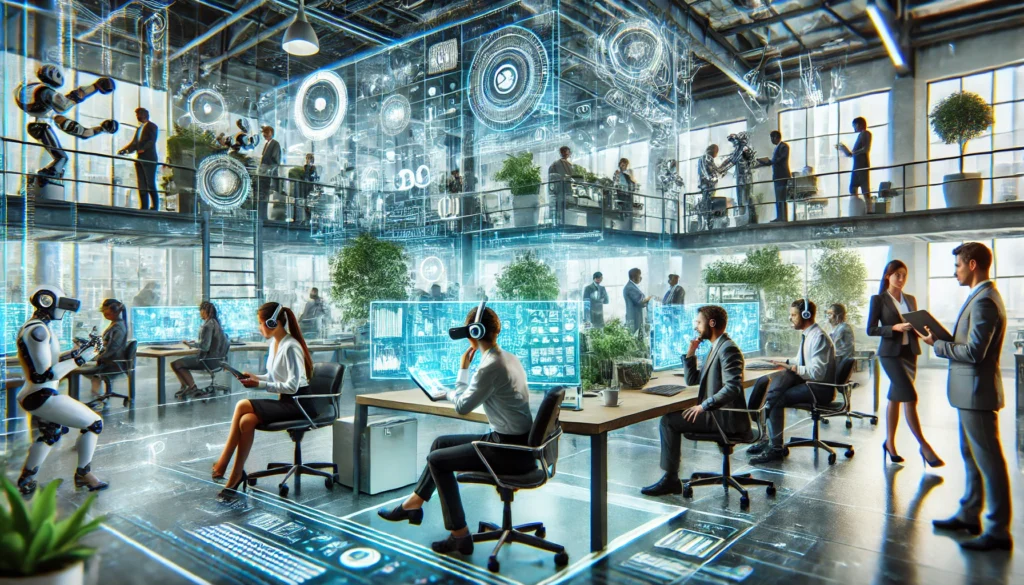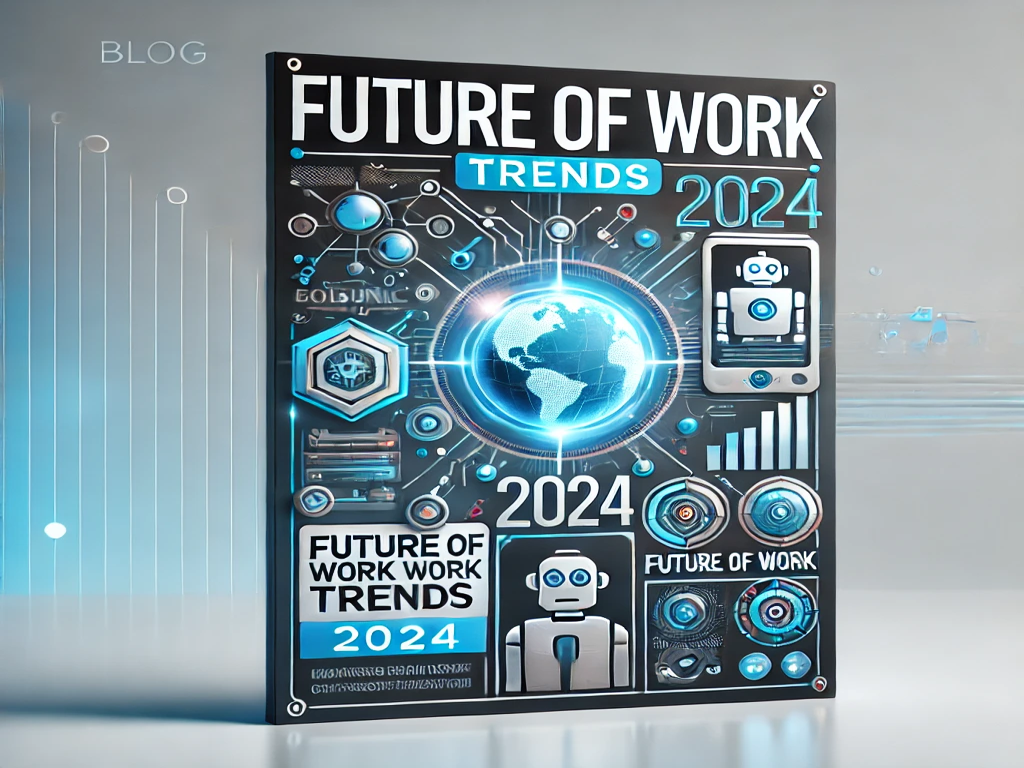The way we work is undergoing a seismic shift. In 2024, understanding the future of work trends is not just important; it’s essential for businesses, employees, and policymakers to stay ahead. From advances in artificial intelligence to changing workforce dynamics, this post explores the most significant trends shaping our future.
What Are the Key Future of Work Trends in 2024?
The future of work trends reflect a workplace shaped by technology, sustainability, and evolving employee preferences. Businesses must embrace these changes to remain relevant in a fast-paced, globalized world.
Key trends include the rise of remote and hybrid work, automation through artificial intelligence, sustainability efforts driven by climate change, and the growing gig economy. Let’s explore these trends in detail.
Remote Work and Hybrid Models: A Permanent Shift
Remote and hybrid working models have become a standard for businesses worldwide. This trend began as a necessity during the pandemic but has since evolved into a strategic choice for companies and employees alike.
Businesses adopting remote work benefit from:
- Access to a global talent pool.
- Reduced operational costs.
- Increased employee satisfaction and retention rates.
However, remote work also presents challenges, such as maintaining team cohesion and ensuring cybersecurity. Companies must invest in robust digital tools and foster a culture of trust to overcome these hurdles.
Curious about how remote work is reshaping workplaces? Check out our Future of Work Trends page for an in-depth analysis.

Artificial Intelligence and Job Automation: A Game-Changer
The integration of AI and automation is perhaps the most transformative of all future of work trends. These technologies enable businesses to:
- Automate repetitive and mundane tasks.
- Enhance decision-making through data-driven insights.
- Improve customer experiences with personalized solutions.
Yet, automation brings challenges. It may lead to job displacement, requiring workers to upskill and adapt to new roles. This shift emphasizes the importance of lifelong learning and continuous professional development.
Discover the latest breakthroughs in AI and how they are reshaping the workforce on our Artificial Intelligence Advancements page.
Sustainability in the Workplace: Responding to Climate Change
Climate change is not just an environmental issue—it’s a workplace issue. Businesses are increasingly adopting eco-friendly practices, from energy-efficient office buildings to waste reduction initiatives.
Workplaces of the future will likely:
- Implement remote work to reduce carbon footprints.
- Transition to renewable energy sources.
- Focus on creating sustainable supply chains.
This transformation is not just ethical—it’s financially savvy. Companies prioritizing sustainability often enjoy stronger brand loyalty and competitive advantages. Learn more about these efforts on our Climate Change Impact page.
The Gig Economy: Flexibility Meets Opportunity
The gig economy continues to expand, providing workers with the flexibility to choose their projects and schedules. This model is particularly attractive to younger generations who value freedom and independence.
For businesses, the gig economy offers access to specialized skills without the long-term commitment of full-time employment. However, it also requires organizations to rethink traditional management strategies and compensation structures.
Explore the implications of the gig economy and other economic challenges for 2024 on our Economic Challenges 2024 page.
FAQ: The Future of Work Trends
- What are the main trends shaping the future of work in 2024?
The most significant trends include the widespread adoption of remote work, advancements in artificial intelligence, increased focus on sustainability, and the rise of the gig economy. - How will artificial intelligence reshape the job market?
AI will revolutionize industries by automating repetitive tasks, optimizing decision-making, and improving productivity. Workers will need to adapt to new roles requiring advanced skills. - How does climate change influence workplace trends?
Climate change is driving the adoption of sustainable practices, such as energy-efficient operations and remote work. These changes aim to reduce carbon footprints while fostering resilience in business operations. - Why is the gig economy considered a future work trend?
The gig economy offers flexibility and access to global talent. However, it challenges traditional workforce structures, requiring innovative approaches to management and worker rights. - What should businesses do to prepare for the future of work?
Companies should invest in technology, prioritize employee well-being, implement sustainable practices, and adapt to changing workforce dynamics to remain competitive.
